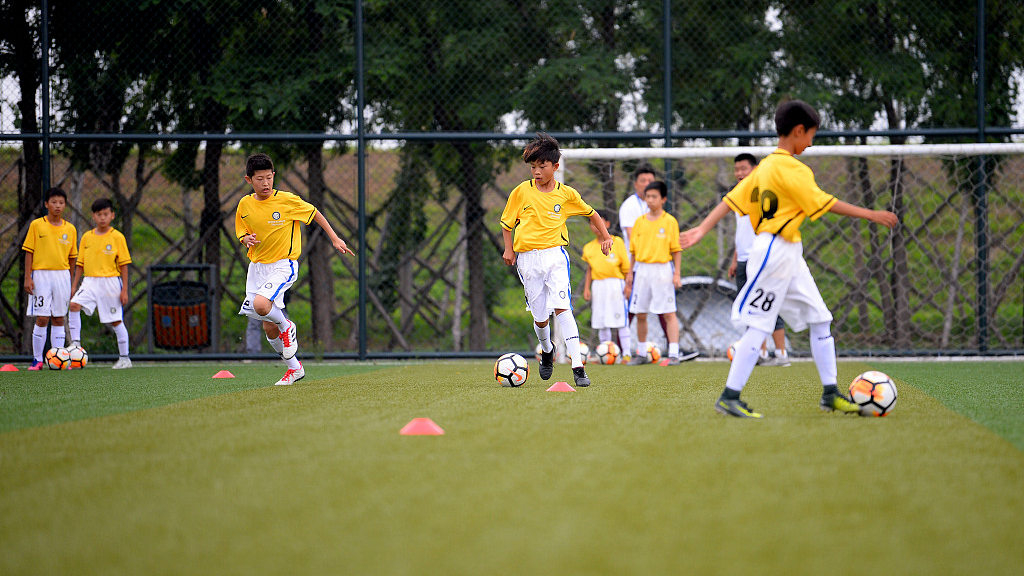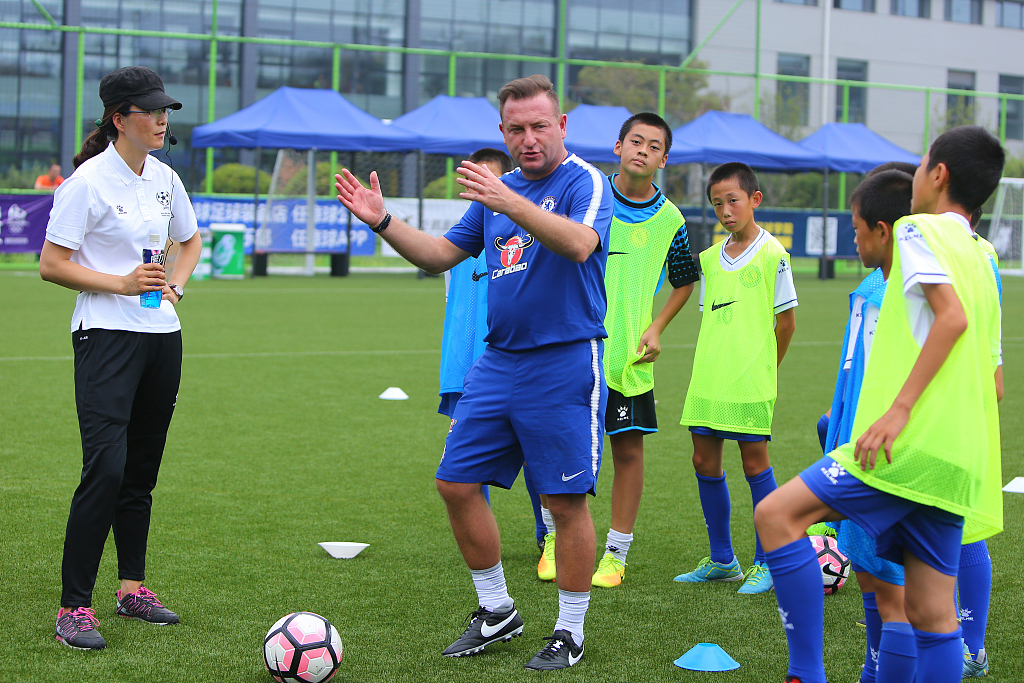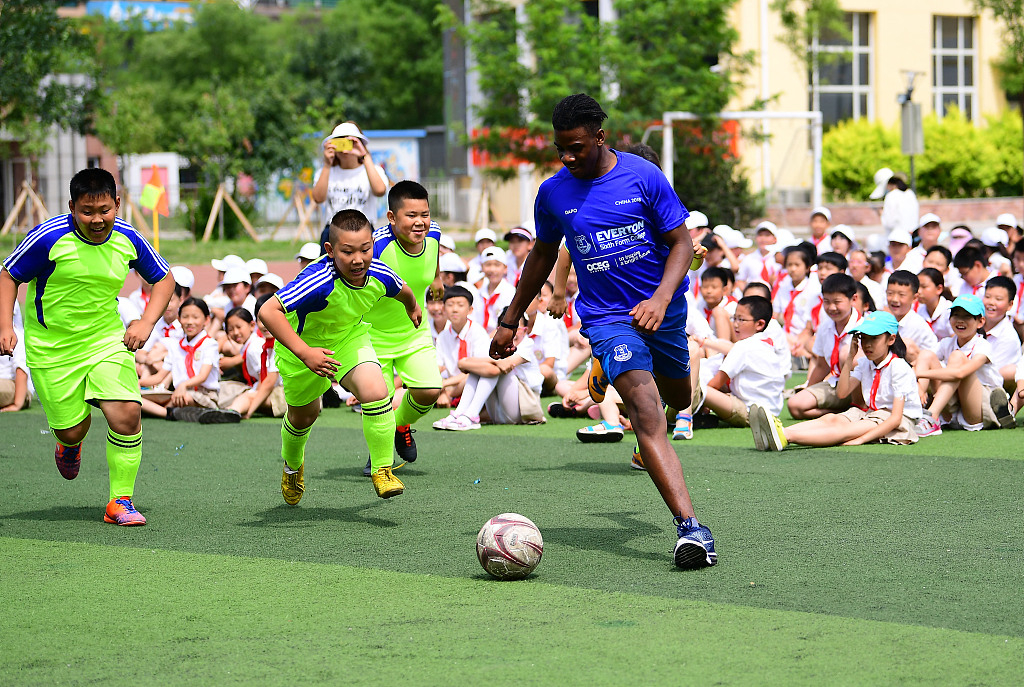
Sports
22:31, 01-Jun-2019
Why China's multi-million-dollar youth soccer industry is still at its infant stage
Niu Yuan

Hundreds of youth soccer academies across China came into being in the past few decades to train and evaluate the next generation of footballers. Heavily promoted by the government, the establishment and development of such academies also reflect a growing need from China's young players to play the sports.
And with that, a multi-million-dollar industry has been created.
A growing business in its starting phase
Currently, one of the traditional and widespread practices youth soccer academies in China are adopting is inviting senior coaches from top-tier overseas' professional soccer clubs, or sometimes retired players, for the most time Europeans, over to China to coach over the summer period and provide their expertise. Or otherwise, in an ideal scenario, coach over a rather long period of time.
Clubs would also organize international tours for Chinese youth soccer players to pay visits to professional soccer teams overseas and receive courses there.
For instance, the Chinese Football Association organized a crew of 15 youth players and 15 coaches to participate in a youth soccer summer camp held in Germany in August 2018. During their stay, they took relevant courses, paid visits to European soccer arenas and watched top-tier European soccer players train. They also be participated in friendship games.

Seeing
the business opportunities generated by China's youth soccer industries, multinational
sports brands like Nike would also engage in such activities by having brand ambassadors in China who interacts with Chinese youth soccer players every once
in a while.
In 2018, former Real Madrid striker Cristiano Ronaldo came to Beijing as the final stop of his annual CR7 Asia tour for the second year in a row. The same day, he formed the Active Schools CR7 Sports Camp, which he said on Instagram aims at "providing access to kids from remote areas in China."
Preferential government policies facilitate the industry
Preferential government policies also work towards the solid establishment and fast development of the youth soccer industry in China.
In 2010, the Chinese Football Association started to address the lack of youth soccer players as well as the low quality of their skills in the country by encouraging professional soccer clubs inside the country standardize the development of youth soccer teams and work their way to professionalize their operations.
At the same time, the Chinese Football Association also made it clear to promote the international cooperation in the field, selecting distinguished youth players and coaches to go overseas for training and competitions; in the meanwhile, inviting top-tier international coaches over to China for teaching.
The expansion of investment channels and the increase of investment from the society as well as relevant government departments also facilitate the campaign.
In July 2018, the Chinese Football Association released a list of 156 youth soccer academies inside of the country which has been approved by the authority.

A lack of maturity in
practice
The common practice most youth soccer academies in China have been
adopting, which is strong exchange with and dependence on overseas soccer industries shows that their operational mode is still at the infant stage.
Such movement in talents is, even though admittedly an efficient, not necessarily conducive to the long-term development of the industry.
For instance, what will happen when Cristiano Ronaldo leaves after having founded the Active Schools CR7 Sports camp during his two-day stay in Beijing? The camp is created under the name of a world-renowned soccer player to build a brand, but how the camp is going to run in the long-term to benefit Chinese youth soccer players takes a good time to plan and execute.
The same logic applies to the operation of China's 156 youth soccer academies as well. Having foreign experts over to stay for a period of time is far from sufficient. Adopting the comprehensive operational mode of professional European soccer clubs is the key for Chinese youth soccer academies' long-term prosperity.
(With data from the Chinese Football Association)

SITEMAP
Copyright © 2018 CGTN. Beijing ICP prepared NO.16065310-3
Copyright © 2018 CGTN. Beijing ICP prepared NO.16065310-3